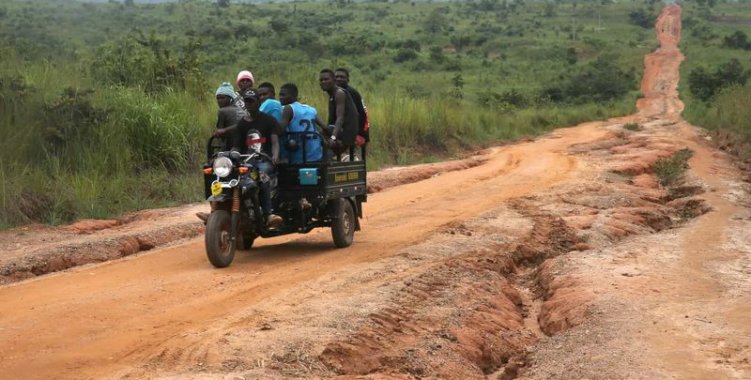Cecília Capassi, who spoke at the meeting on "Access to Land: A Postponed Human Right", organized by Mosaiko – Institute for Citizenship, to mark World Earth Day, stated that orders for expropriation are given to administrators from Luanda, "via telephone".
"Administrator, that land is ceded. If there are people, if there aren't, if there are farms, if there is a cemetery, he never went there and it will be occupied by force", reported Cecília Capassi, adding that "the administrator is the focal point of the entities from the central government of Luanda for the occupations".
"Occupations for the general, for the provincial governments, for the ministers and perhaps for the President [of the Republic] himself and for the multinationals, who are not outsiders. Therefore, the soba lost his traditional authority, because he is a subordinate of the administrator", she said.
The ACC coordinator also described the situation of enticements that occur on the part of the "occupants, the spearhead of the occupier", who, through some goods – "a wine, a bicycle, sugar" – entice the sobas.
"One million and 500 [kwanzas] as they are doing in Quilengues (Huíla province), in the occupation of 44 square kilometers. They destroyed over 200 quimbos, without compensation. One million and 500 does not compensate the land that has crops", she said.
Regarding the legal perspective, the coordinator of Rede Terras, Bernardo Castro, said that Angola has standards for political objectives and not land management in practice.
"Our land legislation is obviously not perfect, but the biggest problem is in land governance, this is where the biggest deficit is, because we don't have any policy focused on land issues, in terms of management, it doesn't exist, that is, we have standards for political objectives", said Bernardo Castro.
Bernardo Castro defended the need to improve procedures, for example, with regard to the consultation mechanism for land concessions.
According to Bernardo Castro, currently the administration or the granting body sends the interested person to speak to the sobas, opening the way for the traditional authorities to be recruited.
Another problem identified, continued Bernardo Castro, is linked to the land registry, which lacks specific regulation.
Considering the "dispersion of the land registry in the country" to be "very serious", Castro highlighted that, at this "precise moment, the Angolan Government does not have a documentary basis in terms of land management with credible data".
"There is no such thing, and when there is this dispersion, there is overlapping of rights, because documents are also forged", he said.
The official highlighted that, in 2014, there was an urgent recommendation from the executive to conform the 2004 land legislation to the 2010 Constitution.
"This is a question of law, we are in a situation where there are several interests, land has become a big business, to such an extent that we are already talking about the land mafia in the country, that is, natural or legal persons who can influence the relative decision issues of good governance in land matters", he stressed.
Speaking to the press, the general director of Mosaiko, Friar Júlio Candeeiro, said that Angola is full of examples in which the community is not informed in a timely manner nor involved in decision-making processes, only to learn that these are private businesses and "not there really is an explicit public interest."







